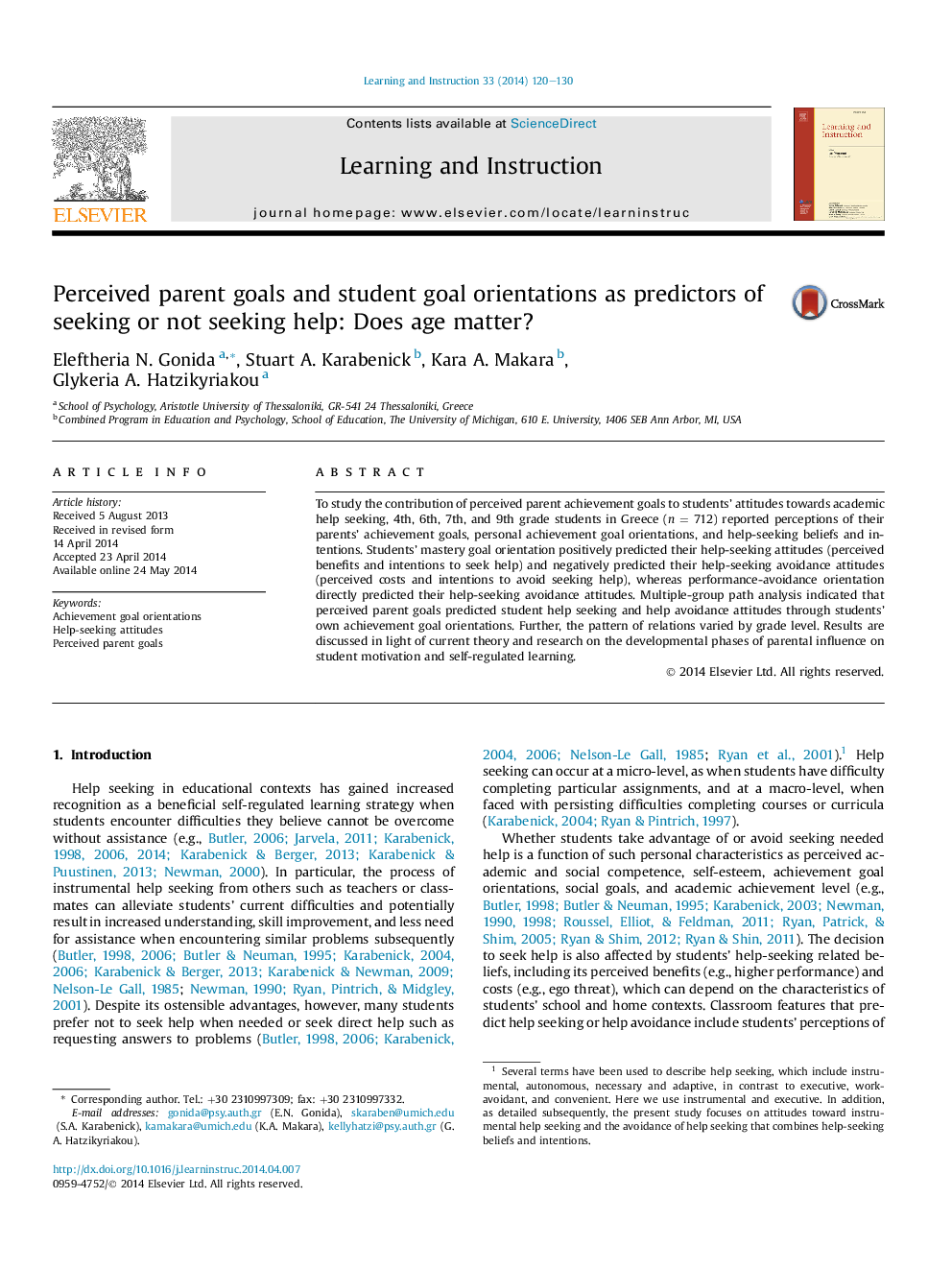| Article ID | Journal | Published Year | Pages | File Type |
|---|---|---|---|---|
| 365565 | Learning and Instruction | 2014 | 11 Pages |
•Relations among perceived parent goals, student goals and seeking or avoiding help varied with age.•Perceived parent goals predicted help seeking or avoidance indirectly through students' goals.•Mastery goals consistently predicted adaptive help seeking independently of age.•Performance-avoidance goals predicted avoidance of help seeking independently of age.•Performance-approach goals promoted adaptive help seeking in different ways across age groups.
To study the contribution of perceived parent achievement goals to students' attitudes towards academic help seeking, 4th, 6th, 7th, and 9th grade students in Greece (n = 712) reported perceptions of their parents' achievement goals, personal achievement goal orientations, and help-seeking beliefs and intentions. Students' mastery goal orientation positively predicted their help-seeking attitudes (perceived benefits and intentions to seek help) and negatively predicted their help-seeking avoidance attitudes (perceived costs and intentions to avoid seeking help), whereas performance-avoidance orientation directly predicted their help-seeking avoidance attitudes. Multiple-group path analysis indicated that perceived parent goals predicted student help seeking and help avoidance attitudes through students' own achievement goal orientations. Further, the pattern of relations varied by grade level. Results are discussed in light of current theory and research on the developmental phases of parental influence on student motivation and self-regulated learning.
